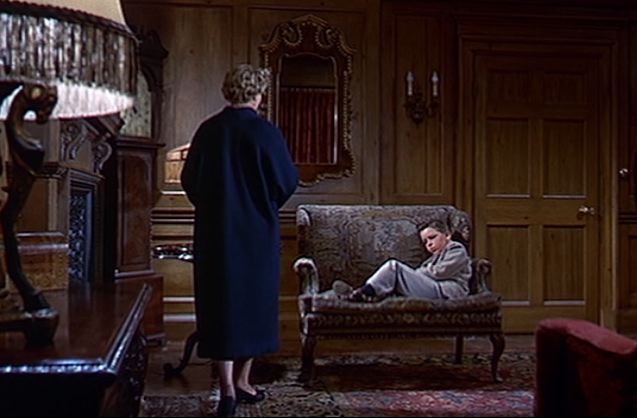Self-Recognition through Song: Lacanic Mirrors in TMWKTM
Many commentators have noted the importance of utilizing the psychoanalysis of Jacques Lacan in examining Hitchcock’s works. This film contains references to one of his most influential theories, that of mirror-recognition in children. Kaja Silverman, in her book The Acoustic Mirror, argues that Hitchcock presents Jo’s voice as a “sonorous envelope” that would carry her son back to her, as if he were still in the womb. Lacan’s thesis states that children first “recognize” themselves in their mother’s voice. This voice is the first a child hears—the first that teaches it language and social skills [10]. Jo’s song to Hank, therefore, serves as a mirror for his self-recognition.

As her voice flies over the stairs and through the Embassy’s hallways, it carries with it a sense of comfort and recognition for the beleaguered and captive Hank. He can see himself in his mother once more by “reentering” her voice with his own whistling, an act that not only completes the foreshadowing from the hotel room, but also moves him closer, musically, to the fetal comfort of her womb.